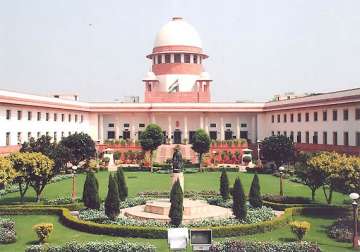New Delhi, Sept 13: The Supreme Court has ruled that judicial officers can be compulsorily retired for “doubtful integrity” even before they attain the age of 50 years.
A bench of justices J M Panchal and H L Gokhale passed the ruling while upholding the compulsory retirement of three senior civil judges R S Verma, Rohilla and P D Gupta for their doubtful integrity.
The apex court said the Fundamental Rules of the Delhi Higher Judicial Services gives absolute right to order compulsory retirement of such officers on the advice of the Delhi High Court even before they attain the age of 55 years.
“It would be seen that FR 56(j) gives absolute right to the appropriate authority to retire any government servant who has entered the service before attaining the age of 35 years, after he has attained the age of 50 years and in other cases after he has attained the age of 55 years.
“There is no rule prohibiting consideration of case of an officer for compulsory retirement before he attains the age of 55 years even if his case is earlier considered at the age of 50 years.
“There is nothing in the Delhi Judicial Service Rules or Delhi Higher Judicial Service Rules or the Indian Administrative Service Rules laying down a prohibition that if the case of an officer for compulsory retirement is considered at the age of 50 years, his case cannot be reconsidered till he attains the age of 55 years.
The aggrieved judicial officers had challenged the punishment and also contended they cannot be retired before they attain the age of 55 years.
“Judicial service is not a service in the sense of an employment as is commonly understood. Judges are discharging their functions while exercising the sovereign judicial power of the State. Their honesty and integrity is expected to be beyond doubt. It should be reflected in their overall reputation,” the apex court said.
It said there was doubt that the nature of judicial service is such that it cannot afford to suffer continuance in service of persons of doubtful integrity or who have lost their utility.
“This court finds that in respect of all the three officers, after the previous consideration in July, 2000, new material in the form of ACR for the year 2000 “‘C' integrity doubtful” had come into existence and become a part of their respective service records when the Full Court in its meeting held on 13.9.2001 recorded their ACRs for the year 2000,” the bench said while upholding the punishment. PTI
Latest India News
